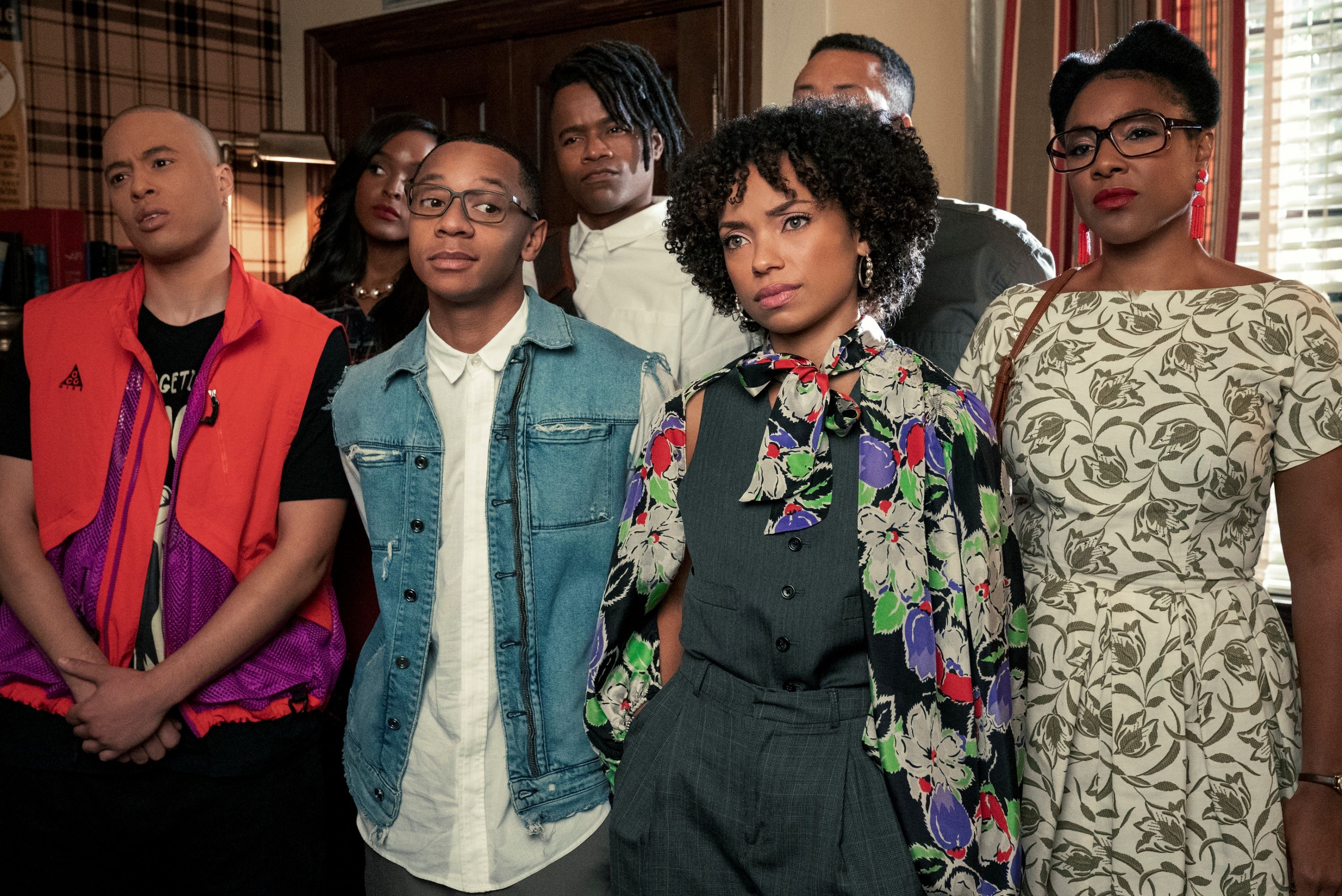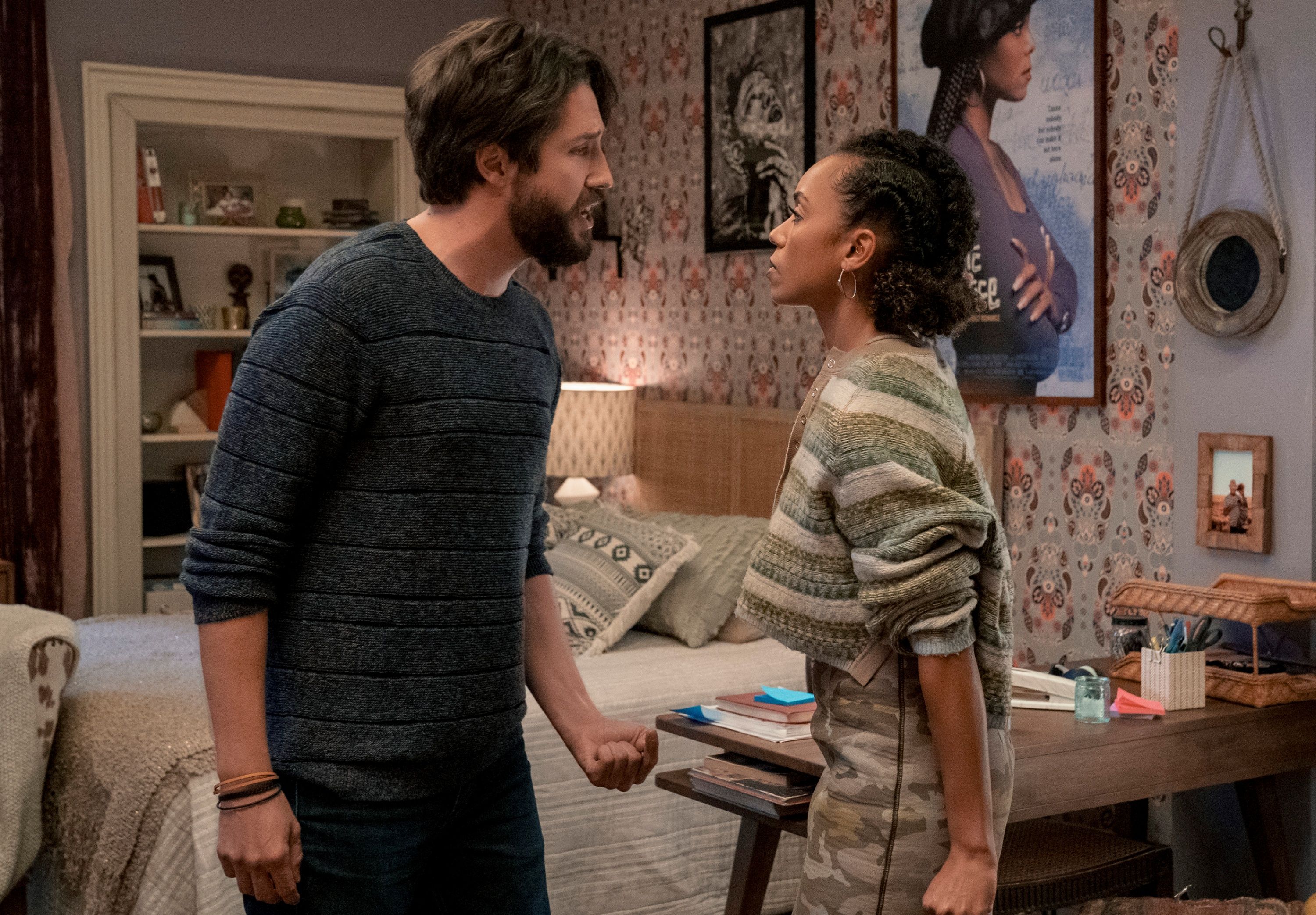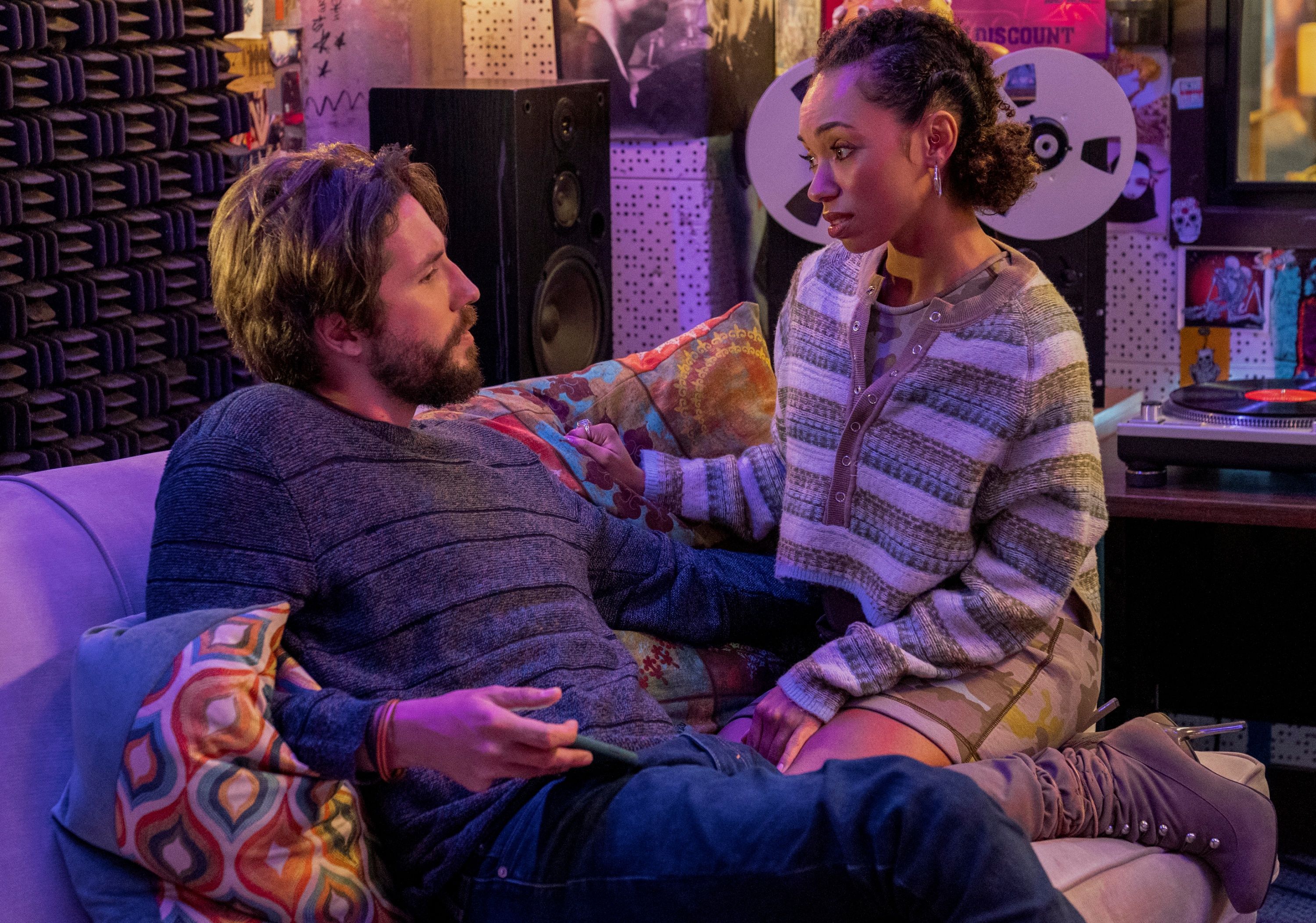[Editor’s note: The following contains spoilers for the final season of Dear White People.]
From creator Justin Simien, Dear White People Vol. 4 is the final chapter in the lives of the Winchester students that have grabbed our attention, expanded our fascination, and challenged us with thought-provoking conversations throughout the run of the Netflix original series. Set against the backdrop of senior year as well as a post-pandemic future, the characters are reflecting on their lives in a very ‘90s-inspired musical way that takes viewers on an emotional journey that is satisfying, bittersweet and inspiring.
During this interview with Collider, which you can both watch and read, co-stars Logan Browning, who plays Samantha White, and John Patrick Amedori, who plays Gabe Mitchell, talked about how they feel about the show coming to an end, being all-in with the musical aspect of the final season, recording their emotional “Bye Bye Bye” duet, and how they felt filming the last scene of the show.
Collider: Thank you for talking to me about the show. I loved the season, but I am also so sad that it’s the last season. When and how did you find out Season 4 would be the final season? Does that kind of news come in a phone call, an email, or a text? How does that work?
JOHN PATRICK AMEDORI: I don’t remember them saying, “Hey, we got picked up, but also, it’s the last [season].” I don’t remember that moment. It’s also been a very wild 14 months of life. We all knew that we wanted to go out on a high note, no pun intended, and do the best we could and feel good about it, and we’d be sad when it was over.
What are your feelings about the show ending? Do you know how you feel about it being done? Is it something that comes on gradually? How do you deal with saying goodbye to it, after four seasons?
LOGAN BROWNING: I just feel grateful, honestly. Not all shows make it to four seasons. Not all shows get to know when they’re going to close their chapter. Not every show got to film during the pandemic. I feel grateful that we got to do that. I also love that this show showcased such incredible talent. We got to all sing and dance in Season 4. Where do they do that? That’s crazy. That’s how I feel.
AMEDORI: It’s like dealing with a breakup. It’s at that place where you know it’s time to walk away, but like you don’t want to.
How did you feel about the musical aspect? What was your reaction to actually doing a musical?
AMEDORI: I was for it. I said to Justin, “We’ve never gone full Fellini before.” He was like, “Yeah, you’re right. So, we’re gonna do a musical.’ I was like, “I’m in. Let’s do it.” All we can do is embrace the process of everything. We were shooting through a pandemic, so we had to embrace that through our own processes. Music is very much my wheelhouse. Logan is very, very talented. To be able to share those things that we’d never gotten to share previously on the share, it was an opportunity for Logan and I to record music and break down a song and see what that was gonna be like. We made the song that we dueted on very deep. It’s not that deep of a song, but we made it that way.
BROWNING: But it is.
AMEDORI: She’s still convinced. I’m not convinced that it’s that deep. But during the moment, she had me believing that we were doing something that was so huge. We were in it together. So, I’m grateful that we had that experience and that we got to have that to share. It’s such a rarity to be able to use every kind of aspect of your performance, body, mind, sound and everything. I tried to embrace it as much as possible.
That duet for “Bye Bye Bye” was the most emotional thing I’ve seen and I had no idea that song could do that to me. Were there conversations about making that as emotional as possible?
BROWNING: That was the tricky part. We recorded the song before we shot the scene, so we, as actors, had to go into the booth and make a choice because it was just us together with our sound engineer. We had to decide, “This is where they’re coming off of. This is the scene before. This is their relationship. This is what’s happening in the scene. And this is where we wanna leave them. Is this sad? Is this angry? Is this confrontational?” We did all of that in the booth. We had to make that choice. Imagine if we made it angry in parts it should be melancholy. It wouldn’t work. So, we had to be on the same page in the booth.
AMEDORI: Yeah, we really dissected the scene. Let’s just say our recording session started at 2:00, and we didn’t go in until 2:25. Logan and I are very similar, and we were very adamant about going through their relationship past and what the argument was, proceeding that song to know what hurts and what you were saying. We broke it down, like an actual scene. It was the Season 4 version of Season 2, Episode 8. We were like, “What are we really saying to each other?,” so when we’d get into the booth to sing, [we’d know what to do]. It was pretty intense, but it was great.
There were points throughout the season that made me emotional, but especially the last episode really did. When you read the last script, did you get emotional reading it? Did you get more emotional filming the final scene?
AMEDORI: I was more emotional shooting it than reading it because we were doing it over Zoom. The impact that I usually have from the table reads, where I get to be around everybody, I felt like that would have been a completely different kind of catharsis. But filming those last moments was probably one of the most surreal moments that I’ve had, as a performer, let alone as a person. Everyone was together and there was silence. You could feel the heartbeats. That was intense. I wasn’t surprised that we were emotional about it. I knew that something was gonna happen, however it happened, and we had to suck it up and wipe the face and do take two, take three or take four to get it.
BROWNING: What made me the most emotional about filming that last scene, that pull-out with the long lens going past everyone’s face, all I kept thinking of was everyone who ever saw themselves in my character. I was just like, “This is what I’m leaving them with. I’m leaving them with themselves. I’m leaving them with themselves, at this moment.” I felt like I was looking into their eyes. It was such a strange, surreal moment. It was emotional. There were people we connected with that we’d never met. That’s bonkers.
AMEDORI: Also, we were shooting it and we didn’t rehearse it with the camera moves. The first time we shot it, all of a sudden, the practical lights went out and everyone was like, “What?! Woah!” We were already kind of sad, and then all of a sudden, the lights go out into dark and you could just feel the hairs on everyone’s neck. I’m feeling it now. I’ll never forget that moment, the first time the lights closed. I was like, “Oh, my God.” And then, you had to become a person again. Yeah, that was emotional. That was sad, but I’m so happy we got to have those moments. That’s so beautiful, to be able to have bunch of people coming together and feeling things. That’s beautiful. We’re so lucky.
I thought it was a really beautiful moment to end the series on. I did not expect it to end that way, and I just thought it was really perfect and beautiful. Thank you for that.
AMEDORI: Thank you.
BROWNING: Thank you.
Dear White People Vol. 4 is available to stream at Netflix.




